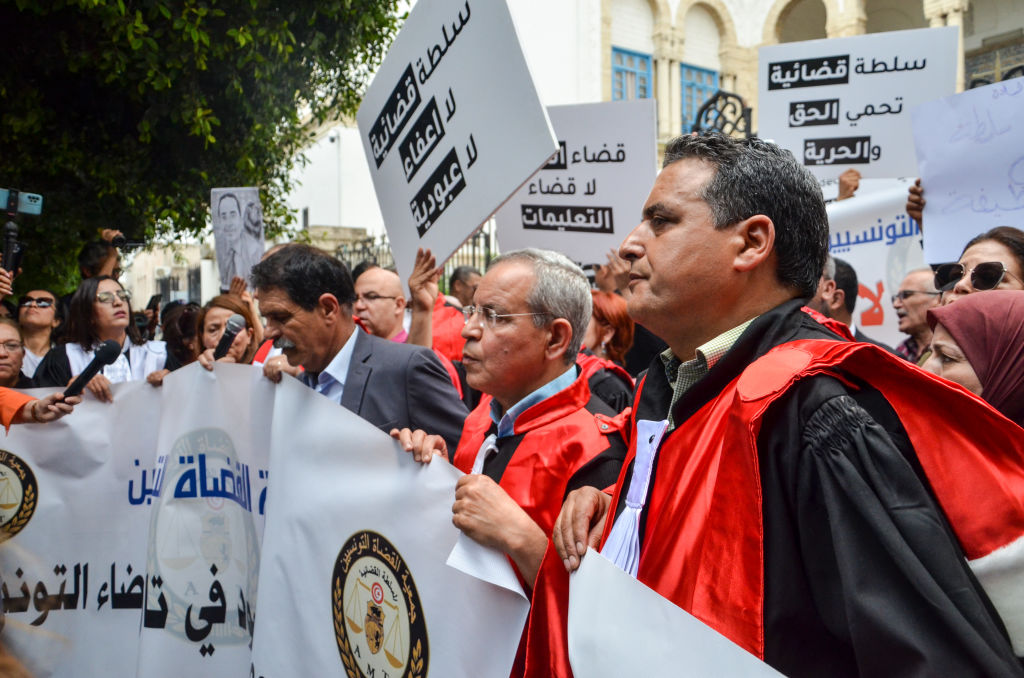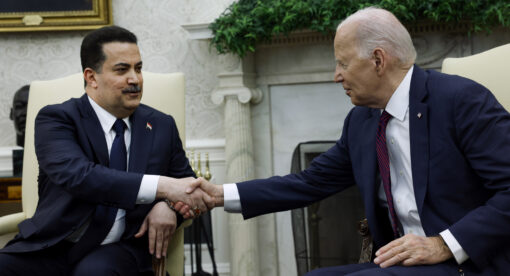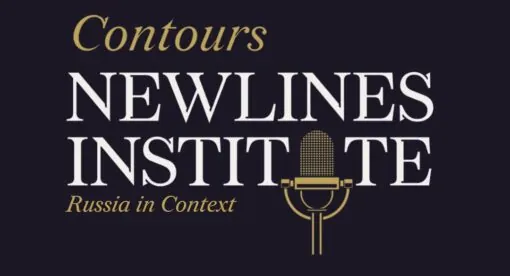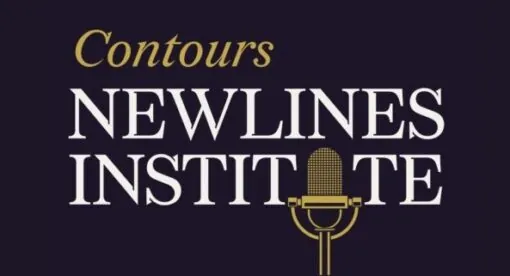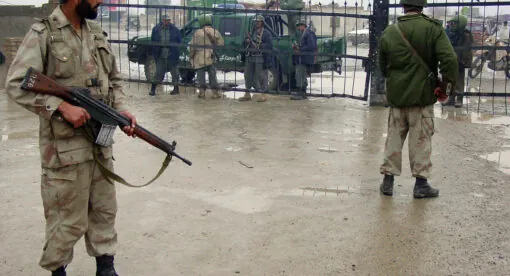Protests against the administration of Tunisian President Kais Saied, which have been growing since 2019, recently intensified after professional football player Nizar Issaoui self-immolated in the village of Haffouz on April 15. Demonstrators are protesting skyrocketing inflation, food and water shortages, and Saied’s increasingly authoritarian government, which recently has begun arresting opposition leaders. This instability has the potential to spread across North Africa.
The unrest also comes amid increasing Chinese influence in the country, with Beijing promoting diplomatic missions and partnering with Tunis to implement Chinese-employed and -led infrastructure packages. While the United States has provided substantial aid to Tunisia, it historically has opted to rely on its European allies to guide foreign policy in the region – a model that the Russian invasion of Ukraine has disrupted. To combat North Africa’s democratic backsliding, the U.S. must re-evaluate how it distributes aid and encourage regional trade cooperation. Washington should also consider countering increasing Chinese influence by offering infrastructure packages that give employment opportunities to people in the region.
Current Conditions
Tunisia has faced several economic and political challenges since 2019. Inflation is projected to reach about 9%, and the unemployment rate is 16%. Further, Tunisia has incurred significant debt and has increased its reliance on capital inflows, which have become more unpredictable amid the COVID-19 pandemic. As recently as 2021, Tunisia was heavily reliant on Ukraine for wheat imports, which has led to food shortages amid Russia’s invasion of Ukraine.
Tunisia has been negotiating with the International Monetary Fund (IMF) for a $1.9 billion loan to ease the impacts of increasing debt. However, Tunis has balked at IMF requirements for the loan, such as foreign investment in state-owned corporations, so negotiations have stalled.
Echoes of the Arab Spring
Issaoui’s death parallels the self-immolation of Tunisian street vendor Mohamed Bouazizi in 2010, which sparked the Arab Spring protests. Tunisians demonstrated against authoritarian rule, cratering economic conditions, and food shortages in protests that spread throughout the Middle East and North Africa and led to the toppling of multiple autocratic governments, including that of Tunisian President Zine El Abidine Ben Ali.
Tunisia then held a series of democratic elections, and a new constitution was signed into law in 2014. However, this transition was limited in its impact as the country faced continuous government corruption, security concerns, and economic insecurity. Saied, a longtime constitutional lawyer, took office in 2019, and his term has been marked by political turbulence and inconsistent policy.
In 2021, Saied began taking measures to expand his authoritative power and transform previously established democratic political systems, including suspending parliament and removing the prime minister. This was followed in 2022 by the dissolution of parliament and a referendum for a new constitution that gave more power to the presidency. Most recently, Saied’s government closed the House of Justice and the Supreme Court and, since February, has begun arresting political opponents.
Since the constitutional referendum, inflation has progressed, unemployment has risen, and overall dissatisfaction in Tunisia has created increasing social unrest and protests. According to the World Bank, about 50% of Tunisians do not regret the protests but feel that their lives are worse off today than before the 2010 demonstrations.
The current round of protests has become significantly more charged since Issaoui’s death, but thus far they have failed to shake Saied’s administration. Less than a week after Issaoui’s death, opposition leader Rached Ghannouchi was arrested and the offices of his party, Ennahda, were raided. On May 15, thousands took to the streets to protest, demanding a return to democratic order and rejecting Saied’s version of government. These demonstrations are likely to continue throughout the summer.
Increasing Chinese Influence
Tunisia is both geopolitically important, sitting just across the Mediterranean Sea from Europe, and vital to great-power competition. As China expands its influence in North Africa, its strategy has been to exploit countries with weak and fractured governments economically. The October 2022 U.S. National Security Strategy lists Chinese influence in Tunisia as a significant threat to U.S. interests that could further destabilize the region and increase corruption, poverty, and violence. The current protests in Tunisia and the political destabilization make the country ripe for continued exploitation. China is a strategic trading partner for Tunisia as it expands its Africa policy. China remains invested in Tunisia diplomatically and financially, funding a new Chinese diplomatic academy and infrastructure projects such as a hospital in the governate of Sfax. There are more infrastructure projects to come as China expands its Belt and Road initiative. In 2021, China signed a $15 billion deal with Tunisia on infrastructure packages, many of which have yet to be started. In the same line of effort, China has pledged to work with Tunisia to aid in economic recovery after the COVID-19 pandemic. As of now, there has been no indication that China will support further economic recovery as the Tunisian government looks to the international community for debt alleviation.
Policy Recommendations
The U.S. historically has centered its policy in Tunisia on security concerns and combating ISIS, a focus that has allowed China to capitalize on its diplomatic and economic influence. However, in reaction to Saied’s increasing authoritarianism, the Biden administration in 2021 proposed cuts to financial assistance and aid packages to disincentivize additional restrictions on democratic practices. If the proposed cut is implemented, it could have the opposite effect and create further instability in the region.
The U.S. has traditionally relied on European allies to regulate and maintain regional order. This includes European-led peace missions, trade commissions, and democratic monitoring. The European Union pledged $650 million to be distributed throughout North Africa between 2021 and 2024, focusing on promoting good governance, stimulating sustainable economic growth, and reinforcing social cohesion to be distributed throughout North Africa. However, given the Russian invasion of Ukraine, Europe is currently limited in resources.
As Tunisia continues to experience food shortages, protests, and increasing authoritarian control, the United States should adjust its approach toward re-engagement and consistency. One of the main challenges the U.S. faces in reinvigorating its Tunisia policy toward is limited resources due to other conflicts and internal political pressure to withhold aid going to autocratic regimes. Nonetheless, the U.S. currently provides approximately $60 million in aid to Tunisia, which is intended to assist in economic development and security assistance. This aid is seeing limited results as political and economic conditions worsen in the country.
Re-evaluating assistance to Tunisia is the first step in combating democratic backsliding and the overarching fragility of democratically fractured institutions. In the short term, the United States should reconsider its aid to Tunisia and refocus it on providing immediate assistance to areas of humanitarian support; this should include food aid, as Tunisia is facing one of its worst food shortages in the last 10 years.
In the long term, the United States should focus on partnerships and supporting economic growth and expansion to increase stability. The United States should reappropriate the financial assistance given to the Tunisian government to incorporate more work from NGOs focused on national reconciliation, education, and sustainable economic growth; this should also incorporate civil society groups that are active in Tunisia. Together, these groups can aid in outreach, promoting democratically inclusive processes and providing economic assistance to those in need.
On a broader scale, economically, the United States can promote the development and implementation of the African Continental Free Trade Area, or AfCFTA, which serves the purpose of uniting African counties through trade and works to reduce reliance on capital imports, a recent struggle for Tunisia. Additionally, the United States can work to propose infrastructure packages that rival the Chinese Belt and Road Initiative by presenting deals that put Africans to work in Africa, boosting the economies and giving individuals work while combating Chinese influence.
Riley Moeder is a Senior Analyst for the Special Initiatives program at the New Lines Institute, focusing on North Africa and Strategic Rivalries. Prior to joining the institute, Riley was a program assistant in the United States Institute of Peace’s Middle East and North Africa department. She previously worked in the American Enterprises Institute’s Critical Threats Department, researching non-state actors in the Sahel. She received her B.A in International Relations from Lewis & Clark College. She received her M.A in International Relations in Security Studies from George Washington University in 2022.
The views expressed in this article are those of the author and not an official policy or position of the New Lines Institute.

